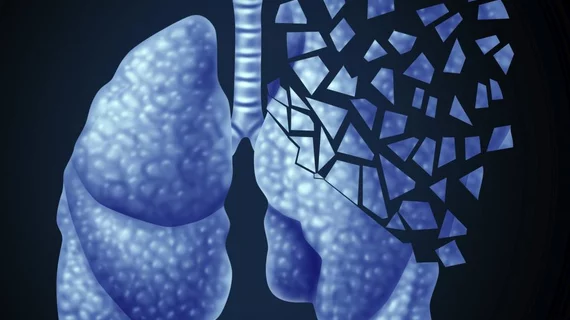International group announces success of project aimed at improving lung cancer detection
The International Association for the Study of Lung Cancer (IASLC) has announced the completion of an Early Lung Imaging Confederation (ELIC) pilot project designed to improve early lung cancer detection by establishing a large network of shared CT images.
According to the group, this four-month project could bring significant improvements to lung cancer screening by creating a “globally-accessible, privacy-secured environment for the analysis of large collections of quality-controlled CT lung cancer images.”
“The IASLC ELIC pilot project represents what global collaboration, cutting edge science and technological advancement can achieve,” Giorgio Scagliotti, president of the IASLC, said in a prepared statement. “The initial results we’re seeing from ELIC support our view that such a novel approach can assist in improving lung cancer screening and reversing the trend where lung cancer is overwhelmingly detected in a later and more deadly stage.”
“It is my hope that ELIC will serve to accelerate progress with lung cancer screening and early detection,” Jim Mulshine, MD, a professor at Rush Medical College in Chicago and chair of the IASLC’s Prevention and Early Detection Committee, said in the same statement. “Those of us who are involved with ELIC see it as eventually housing millions of images so that its automated screening tools can continually improve in detecting early stage lung cancer, improving treatment decisions and saving more lives.”
While the project is still in its “early stages,” the group noted in its statement that there is significant potential for developing such a large archive of CT data. “Having a repository of scanned images and clinical data could support the development of deep learning methods or artificial intelligence approaches to detect early lung cancer and other diseases using thoracic CT images, as well as measure the responsiveness of those conditions to therapeutic interventions,” the statement read.

